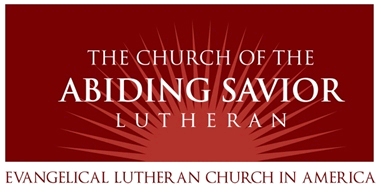Q: What is a Lutheran?
A: Lutherans are followers of Jesus Christ, and members of the Christian Church. They would be defined as evangelical Christians. The term evangelical refers to a term followers of Jesus use to point out that their faith centers in the good news of what God has done for people in Jesus Christ. Lutherans make up the oldest of the groups that are heirs to the Reformation of the Western church five centuries ago. There are about ten million “Lutherans” in the United States (named after the Reformer, Martin Luther).
Q: Who was Martin Luther?
A: He was a fallible, energetic, robust, occasionally crude, never dull German monk who had tried to please God by living the disciplines of a monastery. But he felt burdened by God, not loved, for these efforts. A reading of the Bible, particularly the letters of Paul, led him to an experience of God’s grace (undeserved love and favor). He became a preacher, reformer, church leader, author of scores of books, family man, and proclaimed the fact that God forgives people out of love, through Jesus Christ.
Q: Does Lutheranism have distinctive teachings?
A: Lutherans teach three basic understandings: “Grace alone, Faith alone, Scripture alone.” Grace alone means that God does the work of saving; we have nothing to do with it (we cannot earn it). Faith alone means that we receive this gift when we accept that it’s true; we have faith. Scripture alone means that this gift comes to us through the Word of God in the bible; Faith comes by hearing the Word of God’s good news. These are expressed in different ways through the bible, the Apostle’s, Nicene, and Athanasian Creeds, and through Luther’s writings in the Book of Concord.
Q: What do these central teachings have to do with being a Christian?
A: A Swedish churchman put it well when he said, “Lutheran teachings are not strung together like pearls on a thread. Instead, they all radiate out from the glowing core of justification by grace through faith.” God forgives sin, gives new life, and calls people to be God’s instruments of justice and peace in the world. God is then seen fundamentally as the agent of love in the world.
Q: You make so much of Jesus Christ. What about him?
A: Lutherans share with most Christians everywhere the belief that Jesus of Nazareth, two thousand years ago, was uniquely the Son of God, and indeed actually God. Jesus lived and ministered in and around Judea, died, and was raised from the dead, all to reconcile our relationship with God. In fact, they believe that he is the Son of God today, because he lives among them, even if not as a physical presence. Lutherans devote themselves to his teachings as they are recorded in the bible; they like to study his words and works and ways; to follow his example; to explore what his death on a cross of execution and his being raised to new life by God the Father, mean for their own daily life. They welcome no confession that takes away from Jesus Christ anything of his fully divine or his fully human character.
Q: If you make so much of Jesus, what happens to God?
A: Lutherans believe in God as Trinity. “The Trinity” is not a biblical word; but this word, which was coined by early Christians, is based on biblical realities. Through this formula believers try to hold in perfect unity three ‘persons’ of God and, for them, three ways of experiencing or knowing God. God is their “Father” or creator; God comes in the form of the risen Lord Jesus Christ; and God is present as the Holy Spirit who shapes creation and the church and makes them holy. Lutherans do not believe that they have any special angle of belief on this way of speaking of God.
The Lutheran Church Teaches:
- The Bible is the written word of God – the “source and norm” of our life together.
- God is one God in three persons – creator, redeemer, and sanctifier (Father, Son, and Holy Spirit).
- Humans were created by God in holiness but failed to live into that holiness. We cannot by our own power come back to God.
- Sins are the failures of people to live their lives in trust toward God. They are evidenced in thoughts, words and deeds that cause broken relationships with God or with others.
- The Savior, Jesus Christ, died and was raised from the dead to reconcile the broken relationship of those failures.
- A person is Justified (saved), not through actions or worth, but only by God’s grace through faith.
- Repenting means turning back to God in faith and acknowledging our need for forgiveness.
- The Church is everyone whom God justifies.
- Baptism, a sacrament, establishes new life in a person. It remakes him or her in God’s spirit.
- The Lord’s Supper, a sacrament, is the Body and Blood of Christ borne by bread and wine in Holy Communion.
- The Creeds are statements of belief, not additions to the Bible. They summarize the Bible’s teachings.
- The Gospel, the teachings of Christ, offers grace to everyone and will save those who believe in its promises.
- Faith is the acceptance of these things as true.
- Sanctification (holiness of life) follows faith, but total holiness is possible only after entering eternal life.
- Prayer is a Christian’s sharing of thought with God – communication with God.
- Death does not sever a believer’s relationship with Christ.
- Basically, Lutheranism teaches that a person is saved by the grace of God through faith in Christ!
(Adapted from “Core Beliefs” article from Celebration Lutheran Church)
